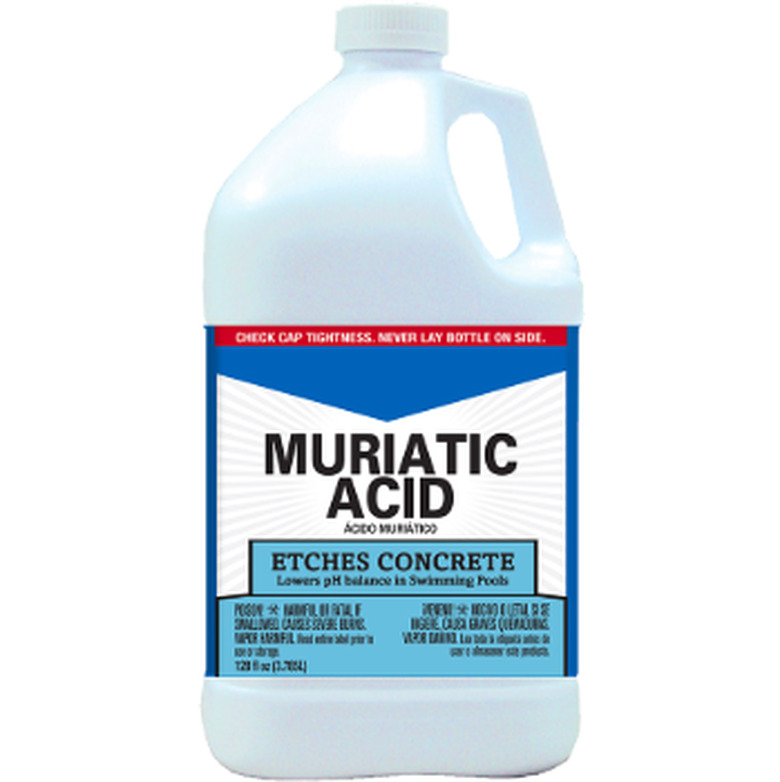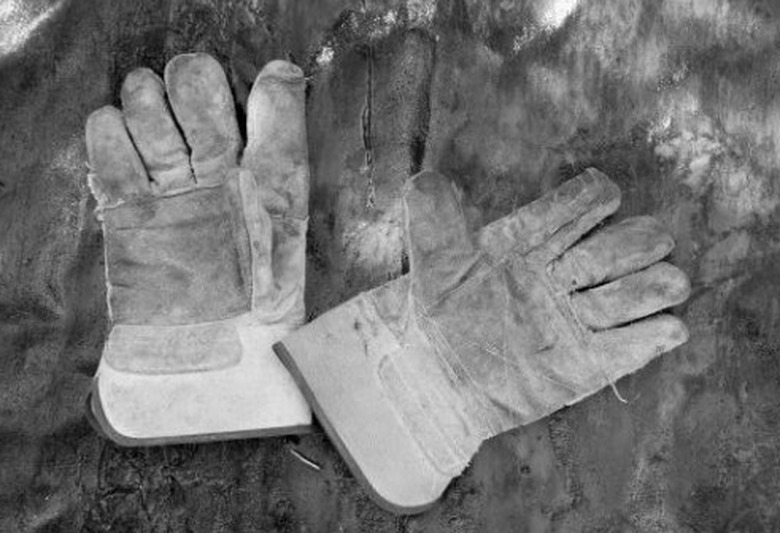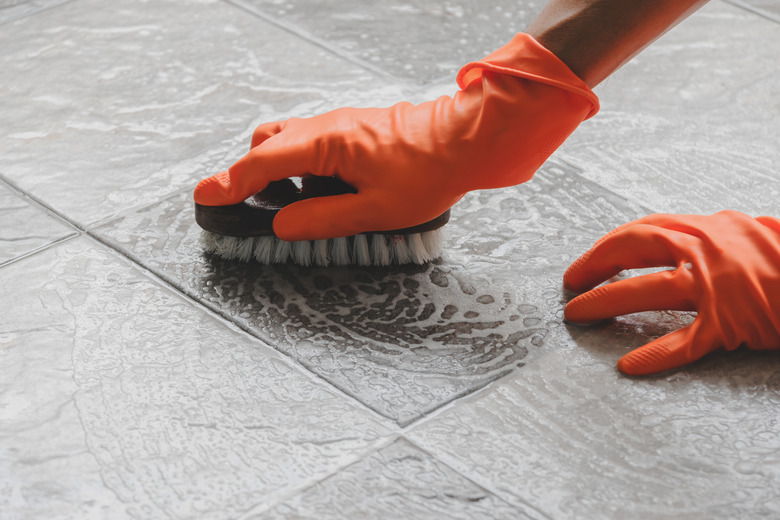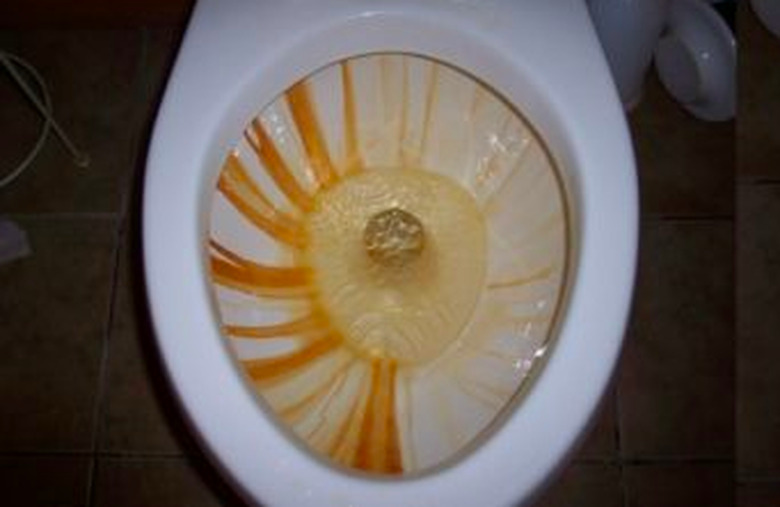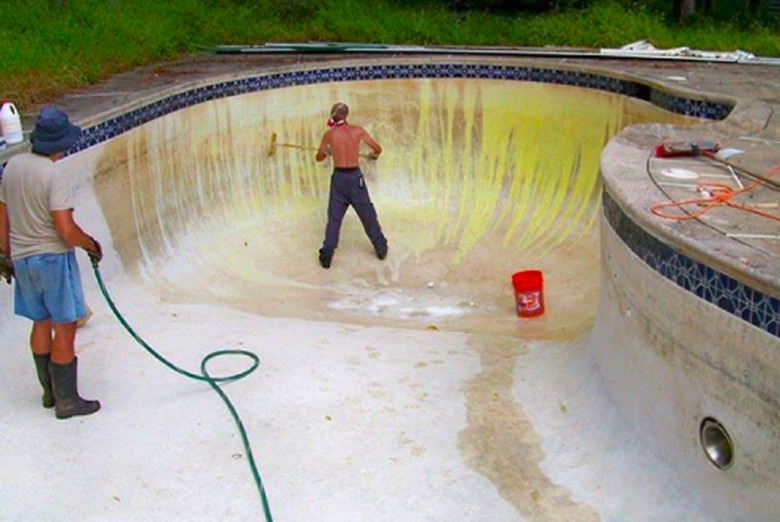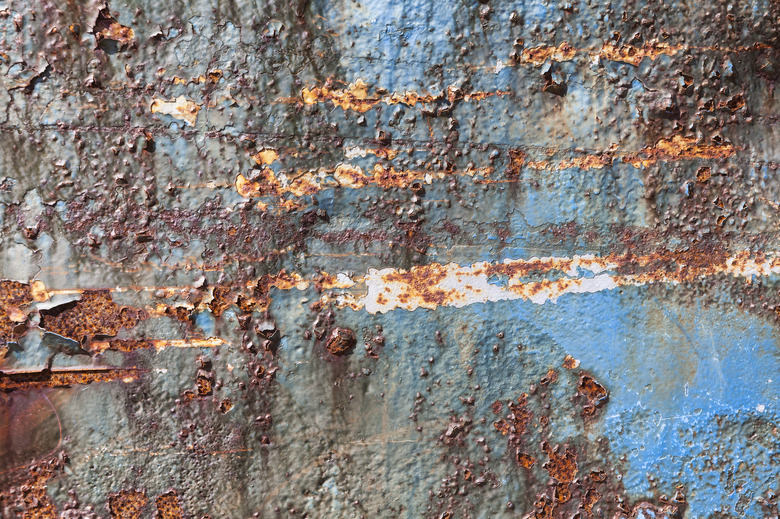What Is Muriatic Acid Used For?
Muriatic acid is one of the strongest cleaners and etching agents that you can get without a license. How strong is it? It's hydrochloric acid strong. It has the same chemical formula as hydrochloric acid—HCL—but it has been diluted to a concentration between 15 and 30 percent. Don't be fooled by the fact that your stomach is full of HCL. In concentrations high enough to be considered hydrochloric acid—and not muriatic acid—HCL is one of the most corrosive acids in nature, eclipsing even sulfuric acid in hydrogen ion production.
Obviously, muriatic acid must be handled carefully, but if you take the proper precautions, it has multiple uses around the house. You can use it to clean stains off your toilet, to remove efflorescence stains from your driveway or patio, and clean your swimming pool. Muriatic acid is also the go-to product for maintaining the pH balance of the pool water when the water gets too alkaline.
Follow Safety Precautions Carefully
Follow Safety Precautions Carefully
Unless you're pouring muriatic acid into swimming pool water, you should always dilute it before use. The recommended dilution ratio for most purposes is 1 part muriatic acid to 10 parts water.
- Always pour acid into water, never the other way around. When you pour water into acid, the mixture bubbles and spits acid throughout the immediate area in a mini-explosion.
- Avoid breathing the fumes. Muriatic acid has a strong, stifling odor. It's corrosive and can do serious damage to your respiratory system and your lungs. Wear a respirator when working with it.
- Never mix any other chemical with muriatic acid. You should only mix it with water. Other chemicals, such as bleach and ammonia, can cause reactions that produce dangerous fumes or worse.
- Wear gloves, goggles and protective clothing, and avoid pouring muriatic acid on grass, plants or trees. The acid is strong enough to burn your skin and eyes, and it kills vegetation. When working around vegetation, keep some garden lime handy to neutralize any spills.
Cleaning and Etching Concrete
Cleaning and Etching Concrete
Muriatic acid quickly dissolves efflorescence from concrete surfaces, and it removes other stains as well. You can also use it to clean soot from fireplace bricks. Dilute by adding 1 part muriatic acid to 10 parts water, or about 1 cup acid per gallon of water. Wet down the surface to be cleaned, using a sponge or a sprayer and allow the acid to work for a minute before scrubbing. In that minute, the acid dissolves most stains and weakens their bonds to the surface so you can scrub them off with a stiff scrub brush or a wire brush. After cleaning, be sure to rinse with plenty of water.
Muriatic acid is also an etching agent for brick or concrete that you intend to paint or stain. Wet down the surface to be painted, wait for about 10 minutes, then rinse. It's a good idea to neutralize the excess acid by spraying with a solution consisting of 1 cup ammonia per gallon of water. Let the surface dry completely before painting.
Cleaning Household Stains and Killing Mold
Cleaning Household Stains and Killing Mold
Muriatic acid shouldn't be your first choice for bathroom cleaning, but when conventional cleaners won't get those tough stains from your toilet, muriatic acid probably will. You should never flush muriatic acid into the plumbing system, though. Fill the bowl only to the normal water line, let it sit for several hours, scrub and then siphon the acid out of the bowl before using the toilet. Dispose of the acid safely, not by pouring it down the drain.
You can handle most mold stains in your house with vinegar or soap and water, but mold growths on basement concrete can be difficult to remove without a strong cleaner. You can use muriatic acid for this purpose, as long as you follow all safety precautions and neutralize it with water and ammonia after you're done cleaning.
Cleaning Your Pool and Maintaining Water Acidity
Cleaning Your Pool and Maintaining Water Acidity
Muriatic acid removes stains from gunite, tile and other pool materials as effectively as it removes them from concrete or porcelain, but it's too corrosive to use on vinyl pool liners. It will also remove rust from ladders and other metal pool components.
Pool owners should have a bottle of muriatic acid in the pool shed for lowering the pH of the pool water. The ideal pH is 7.6, and when the acidity rises higher, chlorine quickly degrades and bacteria can proliferate. The amount of muriatic acid you need to add depends on the volume of the pool and the pH, but for an average size pool with a pH above 7.8, a quart is usually enough.
Muriatic Acid for Rust Removal
Muriatic Acid for Rust Removal
Muriatic acid removes rust stains from concrete, ceramic and even wood, but there's a problem with using it to remove rust from metal. Because it's a strong acid, it promotes oxidation, which means the metal can rust more quickly after treatment. It's best to reserve it only for cleaning stainless steel, which has a chromium-enriched surface coating that resists oxidation. If you do use it to clean sheet metal or forged steel, neutralize well after cleaning and follow with a coat of paint, if possible. The fumes are even more toxic when using muriatic acid to clean metal, so be sure to wear your respirator and goggles and to provide adequate ventilation.
